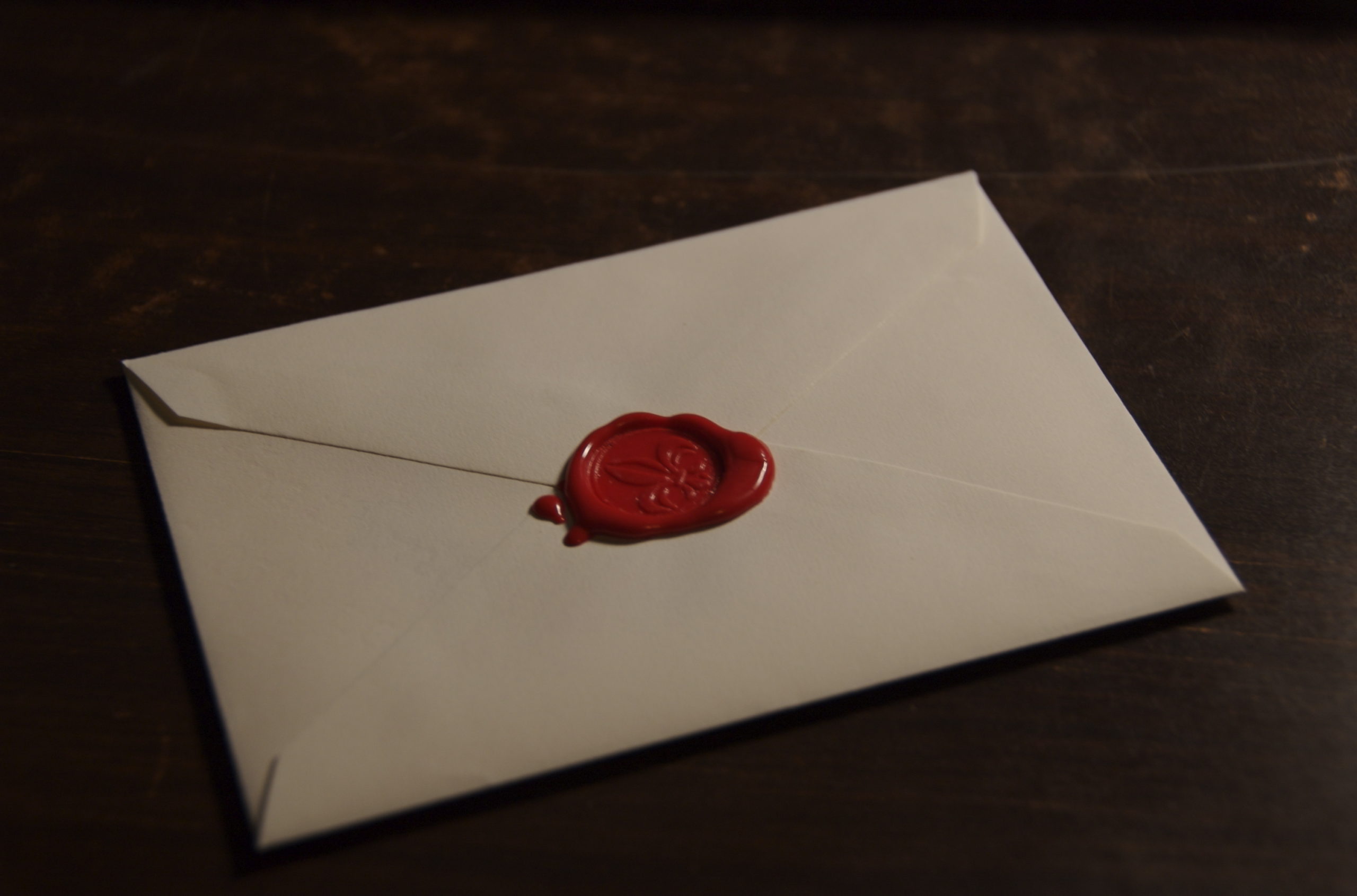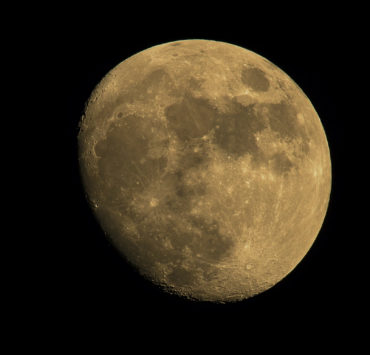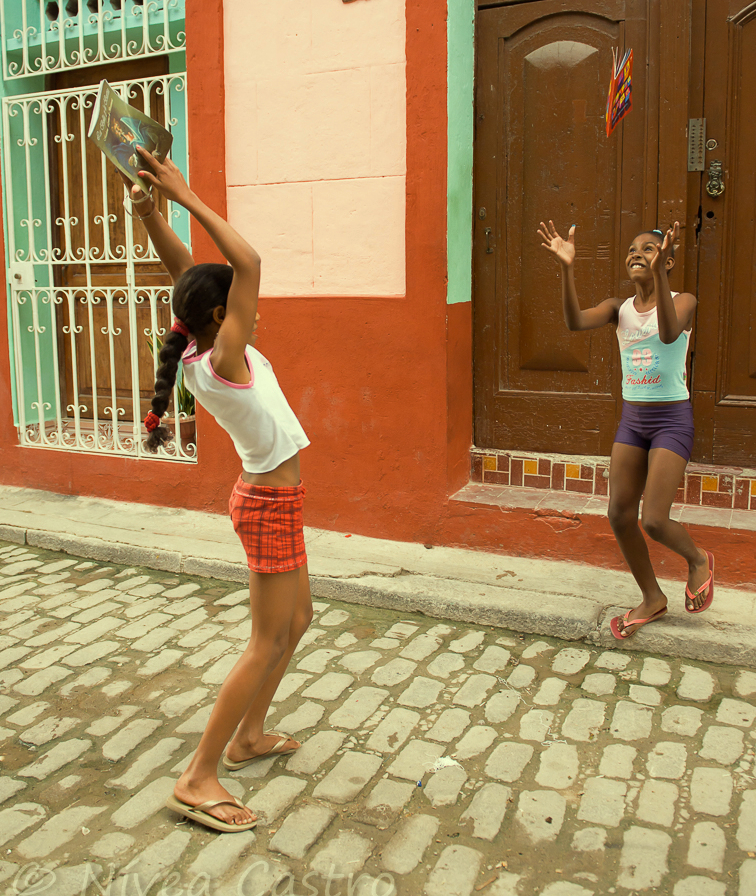
I wanted to see Cuba before it changed, before US franchises imprinted their neon billboards, fast-fake foods, and consumer “goods” onto the country’s landscape, before the culture went the way of a US suburban strip mall like what happened to my beloved Puerto Rico. So when the Lesbian feminist hip-hop duo Krudas Cubensi mentioned last August that they were returning home for the winter, as they do every year, they loved my idea of a photo shoot and invited me along. President Obama had just announced a “back-peddle” of the harsh fifty plus year old US blockade against the Caribe island nation. I had to go.

Even with numerous offers over the years, I never made it to Cuba. This includes my one big regret: Years ago, I was chosen as a US delegate to the 11th International Youth Festival. I had just graduated from law school and my job offer at a social justice public interest law firm was contingent on taking and passing the bar exam. The second day of the exam was also the day the delegates left for Montreal to catch a flight the next morning to La Habana. I had to decide: take the bar exam or ditch it and go to Cuba. My then girlfriend thought I was nuts to even consider not taking the bar, especially after three grudging years of law school. So I gave up my delegate spot and sat for both days of the exam instead. Three months later the results were announced privately by US postal mail and to the world in the biggest circulated Boston daily paper. I had failed the bar exam. The kicker was that the alternate delegate who took my place was a white male AND, out of the 18,500 global participants, the Comandante cherry-picked the US delegation to meet in person, hand shake to hand shake, sans me.
The first thing I did when I arrived to La Habana was kiss the ground, my usual thanks giving after a plane flight no matter where I go. After collecting my suitcase, passing through customs and immigration, which took two plus hours, and exchanging Mexican Pesos for Cuban currency, a taxista charged 20CUCs to take me on a 25 minute ride from the airport to La Habana Vieja, the original city center, which is so culturally significant that it’s a UNESCO World Heritage Site. (CUC is a Cuban currency for foreigners’ use. It’s pronounced the same as the first syllable in “Cuba.” CUCs are valued about 15 percent more than the US dollar, which means one hundred US is worth but 85 CUCs. CUCs may be purchased only in Cuba, and the paper currency itself is constantly changed for politically motivated security reasons I couldn’t figure out, and no one I asked would or could say.)
The taxista drove directly to my hosts’ apartment building, an original art deco structure on the corner of a narrow cobblestone street and a shadowy alleyway, aka un callejón. I stepped out of the unrestored mid-century Chevy but was not sure about entering the darkened hallway of a building that in the States would be a demolition site or a complete renovation project, depending on the neighborhood. The taxista also hesitated. He got out of the driver’s side to unload my luggage from the trunk of the car, looked long into the passageway, made like he was  going in but instead let go of my bag onto the cracked pavement and gave me a look like he meant to say, “Good luck but I ain’t goin’ in there. Pa’ ‘ya no voy.” Lucky for me, Olivia and Odaymara, the duo who make up Krudas Cubensi, were waiting and came out to show me in.
going in but instead let go of my bag onto the cracked pavement and gave me a look like he meant to say, “Good luck but I ain’t goin’ in there. Pa’ ‘ya no voy.” Lucky for me, Olivia and Odaymara, the duo who make up Krudas Cubensi, were waiting and came out to show me in.
After my welcome to Cuba dinner—totally vegan and organic because genetically modified food and chemical sprays have yet to re-enter the island—Olivia and Odaymara walked me to Casa Caridad, a government approved guesthouse two blocks away from their place. I was submerged in brand new yet familiar smells and sensations—whiffs of Reggaetón and Salsa drifted through one of the many open, wood laden windows draped by deteriorated yet still elegant overhanging balconies; women who looked like they could be my cousins chattered in a melodic Caribbean Spanish; guys like my neighbors in Brooklyn sitting on wood crates or on front doorsteps looked on, bright-eyed and curious but, respectfully saying nothing. I felt like I was at home, my sister home.
The Krudas Cubensi duo is famous in La Habana. When we walk the streets people call out “¡Krudas! ¿Qué vuelta?” Odaymara, with her groomed goatee, sharp eyebrows and Mohawk style dreadlocks, responds with a shy smile and head nod to the wassap greetings. Olivia, whose tattoo-outlined lips and eyebrows are crowned by a rooster’s tip on an otherwise shaved head, replies with a gracias and a friendly wave. Sometimes, they stop and converse with their fans who are also neighbors. The fans ask: ¿Qué volá contigo? When is your next show? ¿Cuando llegaron? When do you leave? Olivia replies: It’s all good. Todo entaya. The next show is coming up en una semana. We arrived last  month. We leave next month.
month. We leave next month.
They warn me to walk on the cobblestone streets and not on the two foot wide sidewalk because those elegant balconies have a tendency to break off in cemented pieces, falling on the unlucky individual who happens to be strolling underneath.
In the States, where race comes before nationality, they’d be pegged an interracial couple. In Cuba, both are simply Cubans, or so it seems. I tell them “I’m rolling with Cuban superstars.” They laugh and don’t deny it. They are recognized even around Calle Obispo, an area specifically renovated for foreigners. Cubans are no longer banned from fraternizing with tourists and besides, it’s still their neighborhood.
 After I settled into my guesthouse suite, we went for a walk in the designated tourist area. A woman, not Cuban, said “hi” to me. Las Krudas were surprised. I wasn’t as much. As my long-time friend Patti noted numerous times: no matter where I am in the world, odds are that someone knows me. But, how was it this someone, a foreigner to boot, knew me here in La Habana on the first day of my maiden visit? Turns out she was the French woman I met in the congested customs and immigration line earlier in the day. Apparently, several jumbo jets, all crammed to capacity, let out within minutes of each other. Inching our way to the front, side by side, we traded world travel stories and bonded over our anticipated Cuban adventure. Once again, Patti proved her point. I must tell her.
After I settled into my guesthouse suite, we went for a walk in the designated tourist area. A woman, not Cuban, said “hi” to me. Las Krudas were surprised. I wasn’t as much. As my long-time friend Patti noted numerous times: no matter where I am in the world, odds are that someone knows me. But, how was it this someone, a foreigner to boot, knew me here in La Habana on the first day of my maiden visit? Turns out she was the French woman I met in the congested customs and immigration line earlier in the day. Apparently, several jumbo jets, all crammed to capacity, let out within minutes of each other. Inching our way to the front, side by side, we traded world travel stories and bonded over our anticipated Cuban adventure. Once again, Patti proved her point. I must tell her.
 I’m in Cuba! Como en Puerto Rico, the pre-dawn morning is peppered with rooster’s crows, bird chirps, and dog barks. The clop, clop, clop of horse and wagon on cobblestones greets the day with promises of sunshine and humidity. Male voices call out a medley of their offerings, food like freshly picked tropical fruits and green vegetables, whatever is available that day. Women holler to their neighbors on higher up floors to unlock the front door, “Oyé María…¡MARÍA!” Children’s higher pitched tones vibrate like music
I’m in Cuba! Como en Puerto Rico, the pre-dawn morning is peppered with rooster’s crows, bird chirps, and dog barks. The clop, clop, clop of horse and wagon on cobblestones greets the day with promises of sunshine and humidity. Male voices call out a medley of their offerings, food like freshly picked tropical fruits and green vegetables, whatever is available that day. Women holler to their neighbors on higher up floors to unlock the front door, “Oyé María…¡MARÍA!” Children’s higher pitched tones vibrate like music
and weave into the day’s ambiances. I’m happy.
There’s a popular saying in Cuba: “el[la] que no tiene de Congo tiene de Carabalí.” Meaning, Cubans have something of mother Africa in their veins, obvious or hidden, one way or another. I was pleased to see so many Cubans of African ancestry maintain pure and robust DNA, their Yoruba and Bantú influences intact. Skin tones from café con leche to chocolate to the deepest sienna highlight broad noses with round nostrils like perfect letter Os; enviable plump lips, 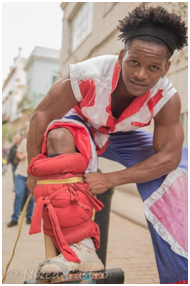 neither collagen nor restylane enhanced; and eyes the color of full-bodied buckwheat honey made for some beautiful faces.
neither collagen nor restylane enhanced; and eyes the color of full-bodied buckwheat honey made for some beautiful faces.
Like in the States, race mingling is obvious given the varied shades of skin color, hair texture, and curved hips, but I didn’t know there were so many white Cubans on the island. I had the impression, from Cubans in the States, that they all fled post-revolution, leaving behind their alleged massive wealth and patriotismo. But no, Cuba is teeming with European ancestry compañer@s. I will say that unlike the Argentinean counterparts I’ve encountered, they are all in with their national identity. There is no, “I’m Cuban but my people are Italian” or “Mi ascendencia es Aleman,” like I heard so many times in Buenos Aires. It was, soy Cubano, soy Cubana. Punto y se acabó.
Still, I couldn’t help observe insidious if not outright racist attitudes and practices by Cubans to Cubans. Many white Cubans seemed comfortable in maintained and spacious homes while brown and black Cubans are funneled into underserved, overcrowded neighborhoods like
La Habana Vieja or relocated to Soviet-era cement block style housing outside of center city, just like the States’ so called inner-city ghettos and the public housing projects built in marginalized sites until hipsters and developers discern value in the locations.
 In tourism-related jobs which offer access to hard currencies like the dollar or Euro, I saw not one brown face. When I asked about this discrepancy, I was quietly told that the existence of social classes and of racial disparity is… well, not publicly acknowledged. To Odaymara, her personal experience of Cuban versus US racism was a difference of language, not form. Whether in Spanish or English, the intended bias is the same. La Revolución’s self-declared promise to eradicate racial injustice seems to have fallen short, like in the States.
In tourism-related jobs which offer access to hard currencies like the dollar or Euro, I saw not one brown face. When I asked about this discrepancy, I was quietly told that the existence of social classes and of racial disparity is… well, not publicly acknowledged. To Odaymara, her personal experience of Cuban versus US racism was a difference of language, not form. Whether in Spanish or English, the intended bias is the same. La Revolución’s self-declared promise to eradicate racial injustice seems to have fallen short, like in the States.
I wonder if Eurocentrist attitudes are in play such that innumerable white Cubans consider themselves the “real” Cubans, the focal point, the normative, the center of the privileged universe while those of darker shades were something other, like maybe Afro-Cubans, like in the States where whites lay claim to be “American” while the rest of us are prefixed fill-in-the-blank American. Yes, on levels extreme and mundane, Cuba is my sister home.
 I met Norma, a longtime friend of Olivia and Odaymara, in Nueva York during an official US tour a couple of years ago. I wasn’t surprised that they knew each other as they are involved in La Habana’s lesbian, gay, bi, and transgender rights movement. They in turn took it in stride that I met them separately through other people in the States. Even though it’s a big world and the Latina lesbian community is sizable, we make efforts to find each other from country to country. I promised Norma that if I ever visited Cuba I’d come see her. A staunch supporter of the revolution, Norma had worked within the government system all of her adult life. (Then again, there being no private enterprise in Cuba until recently, every worker of Norma’s generation was employed by and for the government) Now retired, she continues to participate in the relatively new, sanctioned organization, El Centro Nacional de Educación Sexual (CENESEX), in support of lesbian, gay, bi, and transgender concerns. It’s how she came to tour the US.
I met Norma, a longtime friend of Olivia and Odaymara, in Nueva York during an official US tour a couple of years ago. I wasn’t surprised that they knew each other as they are involved in La Habana’s lesbian, gay, bi, and transgender rights movement. They in turn took it in stride that I met them separately through other people in the States. Even though it’s a big world and the Latina lesbian community is sizable, we make efforts to find each other from country to country. I promised Norma that if I ever visited Cuba I’d come see her. A staunch supporter of the revolution, Norma had worked within the government system all of her adult life. (Then again, there being no private enterprise in Cuba until recently, every worker of Norma’s generation was employed by and for the government) Now retired, she continues to participate in the relatively new, sanctioned organization, El Centro Nacional de Educación Sexual (CENESEX), in support of lesbian, gay, bi, and transgender concerns. It’s how she came to tour the US.
One afternoon, Norma took me to Vedado, the more modern part of the city, housing the notable Hotel Nacional de Cuba, the John Lennon Park, and more interestingly to me, the center point of the city’s gay scene at 23rd and the world famous Malecón. She flagged a shared taxi, a ragged red 1960’s 2-door coupe of an indeterminable make or model. The back was already tight with three adults and one child but the two front seats were available. She slid into the front. I followed. The driver, a middle aged white Cuban, shot her a look I can only describe as disdained ugly. “Sientate atrás,” he said, ordering her to the back. I could tell Norma had dealt with the likes of the driver because she ignored his order, plopped herself close up to his right side, me next to her by the passenger door, and responded in her regal ‘don’t even’ manner with two words, “Somos dos.” If there was little room in the back of the vehicle for one, there was none for two. Besides, we were not moving. I was reminded of Rosa Parks’ famous refusal to move to the back of the bus. The driver was peeved but didn’t argue further.
with three adults and one child but the two front seats were available. She slid into the front. I followed. The driver, a middle aged white Cuban, shot her a look I can only describe as disdained ugly. “Sientate atrás,” he said, ordering her to the back. I could tell Norma had dealt with the likes of the driver because she ignored his order, plopped herself close up to his right side, me next to her by the passenger door, and responded in her regal ‘don’t even’ manner with two words, “Somos dos.” If there was little room in the back of the vehicle for one, there was none for two. Besides, we were not moving. I was reminded of Rosa Parks’ famous refusal to move to the back of the bus. The driver was peeved but didn’t argue further.
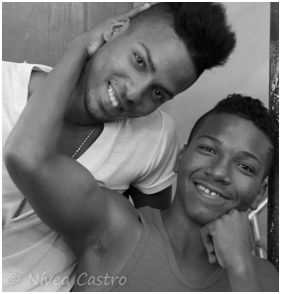 Was his ignorant attitude based on his disdain for her African-ness, her over sixty appearance or her lesbianism, or was it her assured female self? I can’t say with any certainty which one or combination motivated him. Maybe, had he deciphered the lesbian in both of us, he would have been more aggressive. Or maybe not. This is the Cuba of the Commandante’s public apology to the LGBT communities, not the Cuba of the early post-revolution years when gay men, and to a lesser extent lesbians, were forced into labor camps for “re-education and rehabilitation” and denied certain jobs and benefits because they were considered “ideological deviants.” (The focal point was to punish men for not being macho enough. What women did with each other didn’t matter as much as long as they kept it private, continued having babies, and took care of the household, pretty much like in the States.) The history of persecution and harassment against lesbian, gay, bi, and transgender communities in the 1960s and 70s, and the quarantine policies Cuba practiced against people with HIV in the 80s, is undeniable, but I’ve seen that superior, dismissive blink behind the cold stare enough at home in the States and elsewhere to venture that fear and hatred of brown skin drove this white Cuban driver’s particular slight against Norma and me.
Was his ignorant attitude based on his disdain for her African-ness, her over sixty appearance or her lesbianism, or was it her assured female self? I can’t say with any certainty which one or combination motivated him. Maybe, had he deciphered the lesbian in both of us, he would have been more aggressive. Or maybe not. This is the Cuba of the Commandante’s public apology to the LGBT communities, not the Cuba of the early post-revolution years when gay men, and to a lesser extent lesbians, were forced into labor camps for “re-education and rehabilitation” and denied certain jobs and benefits because they were considered “ideological deviants.” (The focal point was to punish men for not being macho enough. What women did with each other didn’t matter as much as long as they kept it private, continued having babies, and took care of the household, pretty much like in the States.) The history of persecution and harassment against lesbian, gay, bi, and transgender communities in the 1960s and 70s, and the quarantine policies Cuba practiced against people with HIV in the 80s, is undeniable, but I’ve seen that superior, dismissive blink behind the cold stare enough at home in the States and elsewhere to venture that fear and hatred of brown skin drove this white Cuban driver’s particular slight against Norma and me.

The Capitolio Nacional, modeled loosely after the US Capital building, marks the boundaries between La Habana Vieja, Olivia and Odaymara’s home base, and Centro Habana, a self-described working-class neighborhood where Norma lives. Norma’s apartment faces the main avenue on the second floor of a former mansion, now a multi-unit dwelling with the original spaces subdivided according to their possibilities and needs. Wide marble stair steps and mahogany handrails allowed a glimpse of the grandeur the building once was. She said hers was the first door to the left of the stairwell landing. I leaned on the rail on my way up. The rail wobbled then unhinged from the wall. I left it right where it fell and continued up the fractured steps, wary of further damage to the building or myself.
Her apartment was actually the mansion’s balcony and front room. The area included a loft but that’s because the original space had high ceilings, high enough to divide the room into an up and down. Norma opened the door on my first knock and invited me in. She led the way from the entry past the kitchenette and offered me a seat on the sofa. The 19” flat screen TV was on but muted.
We had an easy conversation about the state of Cuban affairs and the movement to lift the US embargo. I voiced my worry that Cuba would become another casualty of US entitled overreaching, like in Puerto Rico where the landscape is littered with franchises, foreigners, and consumer “goods” debris.
“Don’t go the way of Puerto Rico, que mi Isla está perdida,” I said.
“Sin apuro. Aquí no va pasar eso.” She clarified that although she may not agree with all the government policies and practices, especially when it came to LBGT concerns and matters of race, ella era Cubana and Cubans were Cuban first, primero.
“We do want a smoother, more open relationship con los Estados Unidos,” she said, pronouncing each syllable in Estados Unidos like warning shots, “… and we could use the material ‘goods’ that come along with the relationship. Es mas, we look forward to better relations with the US, but we have a say, a big say, in how this relationship will function.”
 Norma, like everyone in Cuba, is guaranteed a food stipend and free medical care. She pays no rent, no taxes, no medical insurance and, likewise, her education, a Master’s degree, was provided free, a right of Cuban citizens pursuant to their fifty-six plus year old revolution. Her pension comes to the equivalent of ten US dollars per month plus special assignment pay for things like the US tour. She makes do. Cuba, she said, belongs to Cubans and no one is taking over their homeland, their culture, their revolution, at least not without a fight.
Norma, like everyone in Cuba, is guaranteed a food stipend and free medical care. She pays no rent, no taxes, no medical insurance and, likewise, her education, a Master’s degree, was provided free, a right of Cuban citizens pursuant to their fifty-six plus year old revolution. Her pension comes to the equivalent of ten US dollars per month plus special assignment pay for things like the US tour. She makes do. Cuba, she said, belongs to Cubans and no one is taking over their homeland, their culture, their revolution, at least not without a fight.
I can relate. During my young adult years, I felt that if Puerto Rico’s independentistas had succeeded in obtaining freedom from the “commonwealth” albatross, I definitely would have joined that revolution. I’m a warrior at heart, a social justice seeker and a fighter for people’s rights. It was no accident that I channeled my life energy into martial arts and the law, and no coincidence that I’ve been attracted to Cuba throughout my life; that my family name is the same as the Comandante, in my mind, was bonus proof of my revolutionary credentials.
Present day Cuba reminds me of the Puerto Rico of my youth, and even now the common bond through language, food, and dance is palpable but we, Boricuas, have lost so much. Puerto Rico is no longer ours aunque contamos que todavía es nuestra patria, nuestro hogar. Our “Isla del encanto” is but a tourist la-la land where no passport is required to enter from the States because the US loaded and locked imperialist claim on our country. My grandmother, before 1920, was booted from her land and home in Vieques without compensation because the US Navy needed live ammo target practice space. While exiled in New York, she’d often complain of the weather and people. She’d say, “Este país es tan frio.”
I was  born in that cold country, in The Bronx, and raised in Brooklyn, “the most northern barrios of Puerto Rico,” I’d say to the many Cubans who asked where I called home. They’d guess Venezuela or Mexico, which I found curious until Olivia explained that these two countries are loyal Cuban allies and for Cubans to associate me with them meant they liked me. “Ah…Puerto Rico,” they’d say with approved delight coupled with a tinge of sadness, “Puerto Rico y Cuba: prima hermanas. Somos dos alas de un pájaro.” Odaymara once commented, “If Puerto Rico and Cuba are the two wings, who is the bird?”
born in that cold country, in The Bronx, and raised in Brooklyn, “the most northern barrios of Puerto Rico,” I’d say to the many Cubans who asked where I called home. They’d guess Venezuela or Mexico, which I found curious until Olivia explained that these two countries are loyal Cuban allies and for Cubans to associate me with them meant they liked me. “Ah…Puerto Rico,” they’d say with approved delight coupled with a tinge of sadness, “Puerto Rico y Cuba: prima hermanas. Somos dos alas de un pájaro.” Odaymara once commented, “If Puerto Rico and Cuba are the two wings, who is the bird?”
So finally, here I was in Cuba, a long time wish stemming back to my radical youth days. My first impression overall was that Cuban culture has been beautifully preserved and even enhanced, an unintended byproduct of the US’s stubborn insistence on choke-holding the Cuban economy and its peoples’ will. I felt like I was revisiting my childhood home, like I was back in the 1960s but with flip phones. Racism hasn’t been eradicated. LGBTQ communities still face unfettered discrimination despite having made major strides. Like in the States, laws may improve on institutional practices but do little to eliminate the social mindset embedded like porous cement in the culture, as if wedged into a fragment of our collective DNA.
Would I return to Cuba? In a heartbeat and I plan on it before the US tourist dollars start to flow, with their strings attached like a hanging noose.
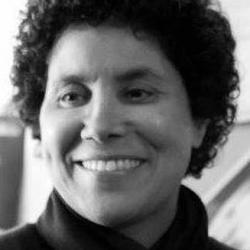
Nívea Castro, J.D., is the curator of Sinister Wisdom; Out Latina Lesbians, published July 2015. A Nuyorican lesbiana activist, Nívea is also a writer, photographer, social justice attorney, martial artist, and educator. A Marge Percy Poetry Workshop participant and a VONA alum, her poems and writings have been published in numerous journals and anthologies, most recently in Word, a Cave Canem chapbook, And Then, Kalyani, Best of Panic, and Stand our Ground. She has appeared and been featured in various venues, including NYC and Brooklyn Lit Crawl, Listen to Your Mother, a national series of live readings by local writers, Crack the Mic, Camaradas, Soul Sister Revue, BAAD!ASS Women Festival, La Pluma y Tinta, New Voices Reading Series, Canvas of Words, and Michfest. She is a member of the New York City Latinas Writers Group. Nívea lives in Brooklyn and is completing a poetry manuscript and an essay/photo chapbook on her recent travels to Cuba. She is working on her upcoming book, Coquito Man. You may read her work and view her photography at www.niveacastro.com. Reach her on Facebook or by email at niv@niveacastro.com.






